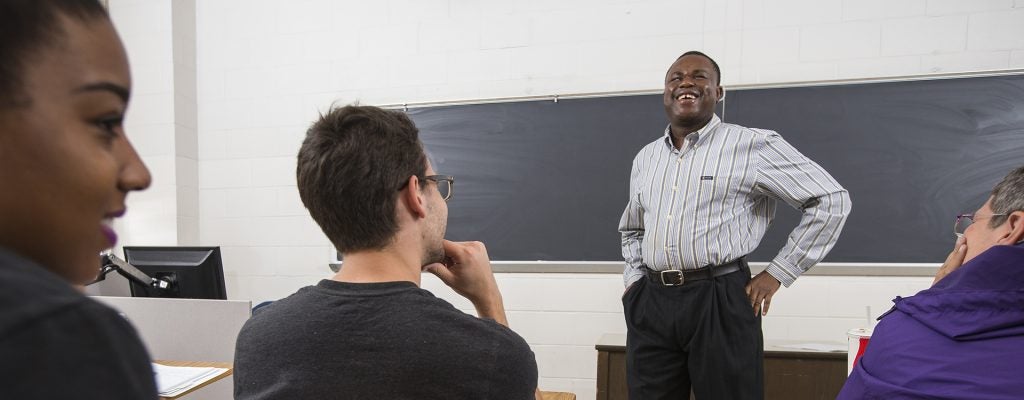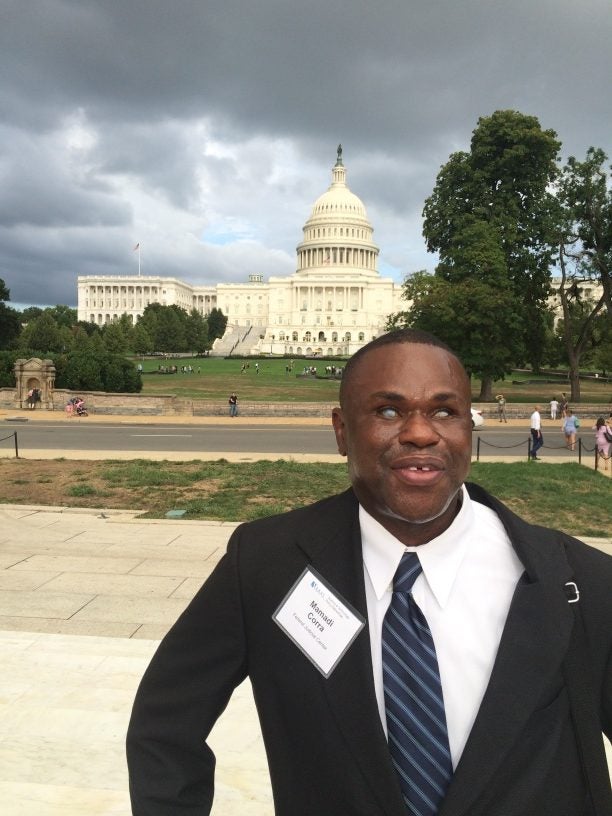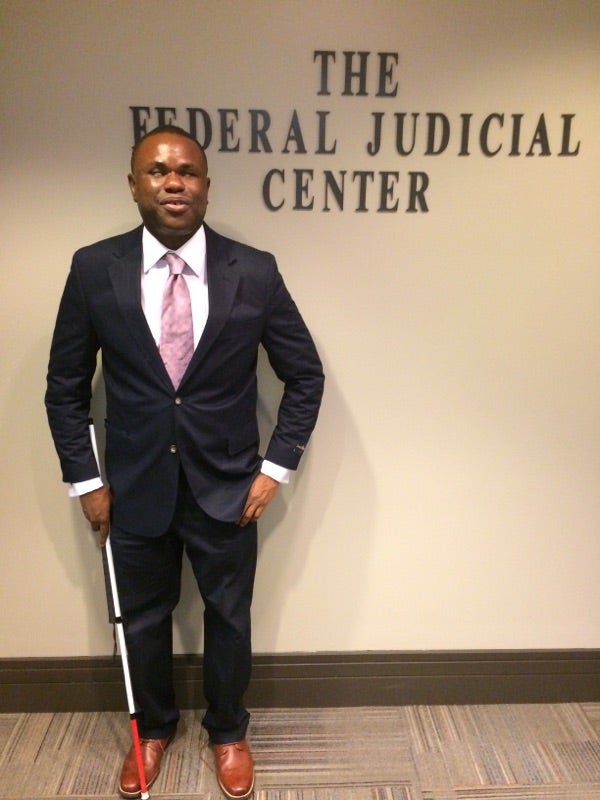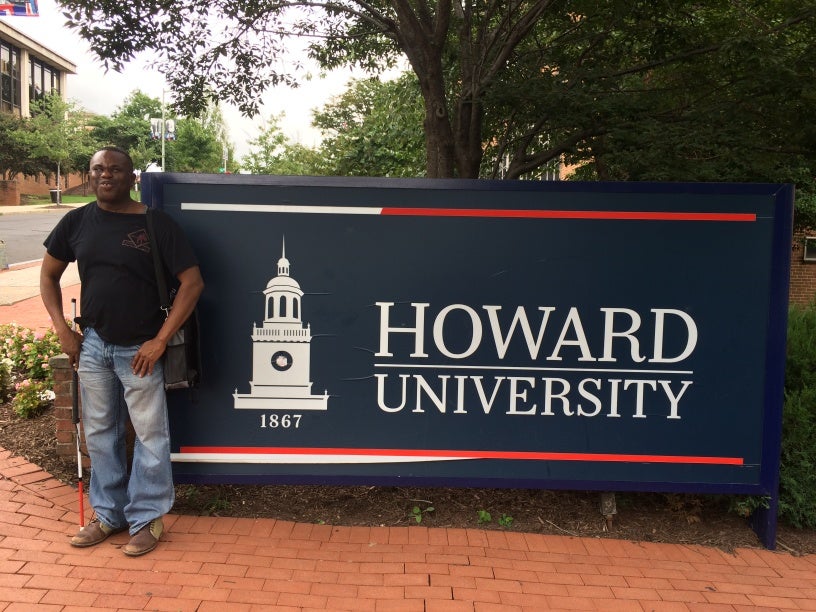ECU sociologist examining accessibility issues through fellowship in Washington, D.C.
East Carolina University professor of sociology Dr. Mamadi Corra is spending a year in Washington, D.C. Corra was named to a Science and Technology Policy Fellowship from the American Association of the Advancement of Science, the world’s largest general scientific society.
Corra is among 300 new AAAS fellows recognized by his peers. Through the fellowship, which runs from Sept. 1 through Aug. 31, 2019, Corra is working with the Judicial Branch of the U.S. Government, specifically at the Federal Judicial Center – the research and education wing of the Federal Judiciary – located in the Thurgood Marshall Judicial Building.

ECU professor of sociology Dr. Mamadi Corra, seen here speaking to a sociology class in 2015, is spending a year in Washington, D.C. through a prestigious Science & Technology Policy Fellowship with the American Association of the Advancement of Science. (Photo by Cliff Hollis)
“The fellowship program is a highly competitive and prestigious one, and receiving the fellowship is a great honor,” Corra said. “So I feel very honored and humbled to receive this award.”
Corra’s main area of teaching and research is in social stratification and inequality, broadly defined. More specifically, his research focuses on social psychology – power and status; race, ethnic, gender and class inequalities; and immigration. He has taught courses in introduction to sociology, principles of sociology, sociology of the family, social structures, social inequality, and racial and cultural minorities.

While participating in his fellowship, Corra poses for a photo in front of the U.S. Capitol Building. (Contributed photo)
According to the AAAS website, the Science and Technology Policy Fellowship provides opportunities for scientists and engineers to contribute to federal policymaking while learning firsthand about the intersection of science and policy by addressing today’s most pressing societal challenges.
“High-profile faculty awards like this, and the social and cultural capital they build, make important contributions to our efforts to rise to national prominence as a great university,” former department chair and professor of sociology Dr. Bob Edwards said. “Dr. Corra’s full-time residence as a policy-relevant research scholar in the Capitol will extend and strengthen Harriot College’s professional networks and working relationships in support of its emerging Washington-based academic initiatives and potentially do the same with ECU’s emerging collaborative endeavors with Howard University.”
“Receiving the fellowship gives me the unique opportunity to fulfill a long-standing aspiration – to apply my scientific (sociological) knowledge to public policy,” said Corra.

Corra is working directly at the Federal Judicial Center, the research and education wing of the Federal Judiciary. (Contributed photo)
As an example, Corra mentioned that in his first two-and-a-half weeks in Washington he learned something new about a policy-relevant issue that is of personal interest to him as a visually impaired individual; that the accessibility of federal courts may only be framed in the context of the federal judiciary.
“A goal of mine is looking at accessibility issues in the Federal Judiciary with the hope of developing a policy document on improving the accessibility of federal courts,” he said.
“I believe one of the key aspects of being an informed and actively involved citizen is to be aware of how your government works and to contribute in its improvement,” said Corra. “The Science and Technology Policy Fellowship gives me the unique opportunity to do this, while also doing something that I love – research that is public and applied in nature … timely research that is policy-relevant and in a key aspect of our government.”
Corra came to ECU in 2003. He received his Ph.D. in sociology from the University of South Carolina, and his master’s in business administration and bachelor of science degrees in sociology and business administration from Gardner-Webb University.
Since 1874, the AAAS Fellows program has recognized researchers for scientifically or socially distinguished efforts to advance science or its applications. Previous Fellows include astronomer Maria Mitchell, who discovered a comet that now carries her name; inventor Thomas Edison, whose creations included the incandescent light bulb; and anthropologist Margaret Mead, whose field research on culture and personality attracted much acclaim. For more information about the AAAS, including all fellowship programs offered, visit https://www.aaas.org/.

Corra on the campus of Howard University in Washington, D.C., where ECU is pursuing collaborative endeavors. (Contributed photo)
-by Lacey L. Gray, University Communications